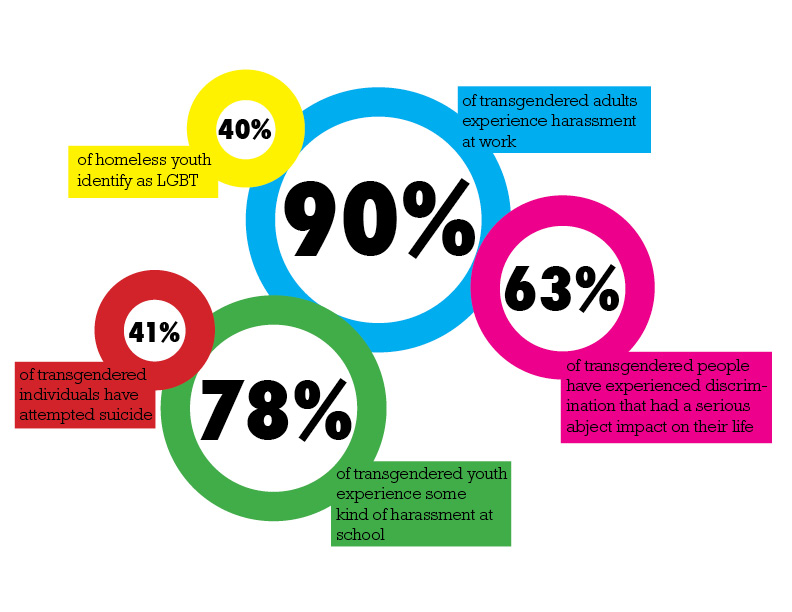
What makes someone a male? Would it be simply possessing male genitalia (including a penis, urethra, scrotum, testes, vas deferens, epididymis, etc) or having a single X and single Y chromosome? Would it be conforming to societal norms that are typically reserved for males such as roles that concern strength, aggressiveness, and dominance?
There are many variables that play into being a male or female, so what would a "male" with some but not all of the characteristics be labelled as. At what point is someone no longer a male? Should there be terminology to reflect these discrepancies? Are our current gender roles and norms inefficient?

These issues are typically contained within the realm of "societal issues;" however, we are seeing, with increasing intensity, that transgender rights and issues are tying into many facets of life. Recently the ICD-10 CM and DSM-5 both classified Gender Dysphoria as a disease.This has shined a large spotlight on the struggles that transgender communities all over the world are fighting for. Not only do they want equality in their day to day lives, they were proper and dignified healthcare.
From a biological point of view, there are major differences between the male and female members of the human race that have to be controlled for when working with transgender individuals. Firstly, males are typically stronger than female. This can raise issue when dealing with transgender individuals in correctional facilities. Someone born with body growing with the male pathway but identifies as a female may still be at an unfair advantage in a prison settings. The opposite is also true for transgender males. Similarly, in a hospital setting, a physician should be trained and knowledgeable in the field of intersex to be able to work well with someone displaying "atypical" genitalia. (Atypical is in quotations because being born intersex is actually not that uncommon!)
When asked, many transgender individuals would confess simply having strict gender roles and labels makes things much more complicated for them in the long run. Nowadays views on the transgender community are improving as the world becomes more tolerant. This shift is assisted by trans icons as well as drag queens (who are typically NOT transgender individuals).
  |
| Top: Laverne Cox, transgender actress icon who reached stardom after appearing in the hard-hitting Netflix series "Orange is the New Black" Bottom: Model, actress, singer, and host of his own TV show, Rupaul in and out of drag. He doesn't care whether he is referred to with female or male pronouns. |
As a healthcare professional, it is necessary to put personal feelings and preconceptions aside and care for the individual without the plague of stereotypes clouding your vision. I brought the issue of remaining professional in healthcare up in class before. I believe that although approaching a situation without any bias in idea is the ideal way to approach any issue, the reality is not the same. Because stereotypes and prejudices are so common, certain groups should be given special treatment in an effort to control for the disadvantages they face often.
For transgender patients there are a lot of things they face day to day that makes simple doctors' visits dreadful. Whether it be someone still "in the closet" who feels uncomfortable with the polarized language doctors use when talking about puberty in males vs females, or be it someone transitioning who is in an awkward stage of self understanding coupled with a body they would rather another person didn't examine. Transgender individuals are already prone to bullying and as a result, psychological distress. Because of this, medical professionals should better educate themselves on the the proper terminology and train themselves to decrease their background prejudice to a lower and non-obtrusive level.
Controversies Today
BATHROOMS

HIV/AIDS PREVALENCE

MENTAL HEALTH

PRONOUNS

DENIED SERVICE (Yes EVEN IN HOSPITALS!!)

Oh, to live in a world where everybody's just "everyday people." We put one another in so many gratuitous, dehumanizing boxes!
ReplyDeleteCongrats for making the cover of the Honors Magazine, Bell!
ReplyDeleteThank you! I am HONORED :)
Delete